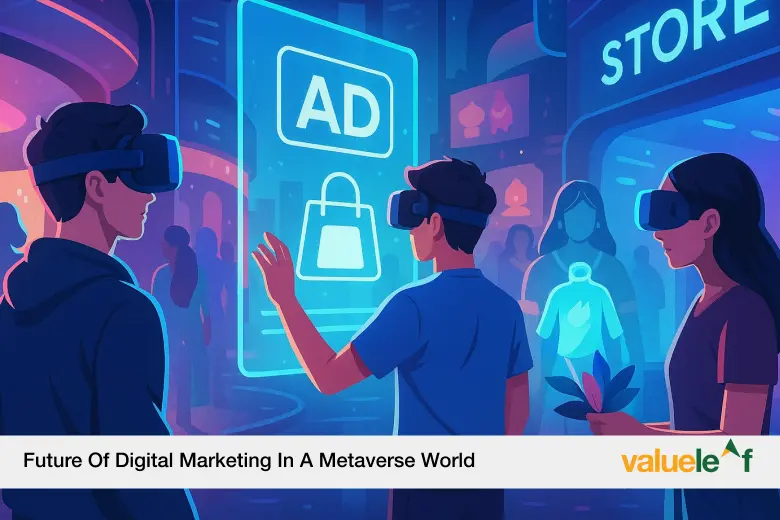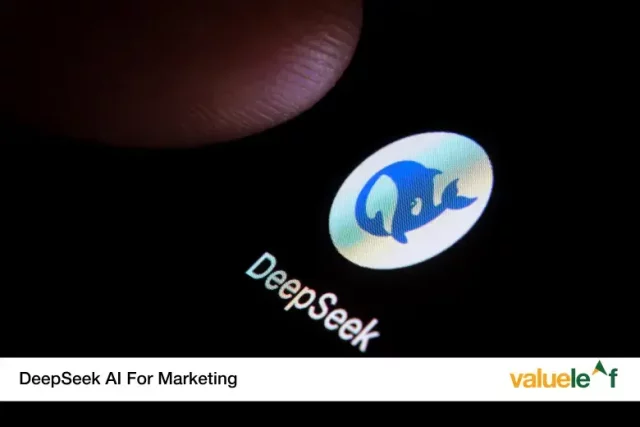The metaverse is no longer a futuristic concept—it’s already transforming how brands and consumers interact.By 2025, virtual environments are redefining future of digital marketing strategies, offering brands new ways to build engagement, loyalty, and immersive experiences. However, while the metaverse presents exciting opportunities, it also introduces significant challenges.
This blog shows how digital marketing in the metaverse is evolving and how brands can navigate both the opportunities and the risks ahead.
What Is the Metaverse and Why Does It Matter for Marketers?
The metaverse refers to interconnected virtual worlds where users interact, socialize, shop, and work using avatars and immersive technologies like VR and AR.
Platforms like Roblox, Decentraland, Horizon Worlds, and Sandbox are leading the way, creating thriving virtual economies.
For marketers, the metaverse offers a new frontier to engage consumers in experiential, interactive environments rather than traditional ad spaces. As consumer behavior shifts toward digital ownership (NFTs) and virtual socialization, brands must rethink how they tell stories, build trust, and drive conversions in these 3D environments.
Opportunities for Brands in the Metaverse
The metaverse brings a wave of innovative marketing possibilities. Here are the major opportunities:
Enhanced Immersive Brand Experiences: Brands can now create virtual stores, interactive showrooms, and gamified experiences. Nike’s “Nikeland” on Roblox allows users to try virtual products, while luxury brands host VR fashion shows.
Virtual Goods and NFTs: Selling digital merchandise and branded NFTs offers a new revenue stream.Scarcity-driven campaigns, digital collectibles, and limited edition drops are gaining traction, especially among Gen Z consumers.
Hyper-Personalized Advertising: With real-time behavioural data, brands can deliver tailored ads and experiences inside the metaverse based on user interests, movement patterns and social media interactions.
Community Building and Loyalty: Virtual events, branded concerts, and interactive games help brands nurture online communities, boosting loyalty and long-term brand engagement.
Challenges of Digital Marketing in the Metaverse
While the metaverse offers new possibilities, it also introduces significant challenges:
High Costs and Technical Challenges: Building VR/AR experiences and virtual assets demands significant investment and expertise. Small and mid-sized brands may struggle to overcome these entry barriers.
Data Privacy and Ethical Issues: The collection of behavioral and biometric data in virtual worlds raises major privacy concerns.Brands must be transparent and ethical about data usage to maintain user trust.
Platform Fragmentation Challenges: With multiple platforms like Decentraland, Roblox and Meta Horizon, scaling campaigns remains complex and costly.A lack of universal standards complicates cross-platform marketing efforts.
Difficulty in Measuring ROI: Traditional metrics like clicks and impressions don’t effectively capture metaverse engagement.Brands need new models to measure brand impact, consumer interaction, and ROI in virtual spaces.
How Brands Can Prepare for the Metaverse Era
To thrive in the evolving metaverse landscape, brands must adopt a proactive, experimental, and ethically-driven approach. Here are key steps to build a strong foundation for success.
- Start with pilot projects on a single platform to test audience response before full-scale investments.
- Collaborate with metaverse-native creators who understand virtual audiences and trends.
- Focus on experiential storytelling, building immersive brand narratives rather than hard-selling products.
- Prioritize ethical marketing by respecting user privacy and ensuring clear, consent-driven data practices.
Real-World Examples of Metaverse Marketing Success
Several pioneering brands have already demonstrated how creative engagement in the metaverse can drive massive brand awareness, loyalty, and revenue.
Here are some standout examples:
- Nike’s Nikeland (Roblox): Users engage with Nike products in a virtual sports-themed world.
- Gucci Garden (Roblox): Gucci launched an immersive virtual fashion event, driving massive engagement.
Coca-Cola’s NFT Drops: Coca-Cola released branded NFTs to celebrate virtual friendship, raising funds for charity and boosting brand presence among young audiences.
Conclusion
The future of digital marketing is already being reshaped by the metaverse.
Brands that adapt by creating immersive experiences, building authentic communities, and embracing ethical data practices will lead the next wave of marketing innovation.
While challenges like high costs, data privacy, and ROI tracking exist, the potential rewards are immense.
Success in the metaverse will belong to brands that experiment early, learn quickly, and engage meaningfully in this new virtual frontier.
FAQs
- What is the metaverse in digital marketing?
The metaverse refers to virtual environments where brands can engage consumers through immersive experiences like virtual stores, events, and branded assets, often using VR, AR, and blockchain technologies.
- How can brands market themselves in the metaverse?
Brands can create virtual experiences, sell digital goods (like NFTs), collaborate with creators, host live events, and build interactive community spaces to connect with users authentically.
- Why is the metaverse important for marketers in 2025?
The metaverse offers new engagement models beyond traditional ads, tapping into the growing digital ownership economy, immersive storytelling, and loyalty-driven brand interactions.
- What industries are most active in metaverse marketing?
Fashion, gaming, technology, real estate, and entertainment brands are leading early adoption, but sectors like retail, education, and finance are rapidly exploring metaverse campaigns too.
- What are the main opportunities for brands in the metaverse?
Brands can benefit from immersive brand experiences, NFT product launches, hyper-personalized advertising, and virtual community building.
- What challenges do brands face when marketing in the metaverse?
High entry costs, data privacy concerns, platform fragmentation, and difficulty in measuring campaign ROI are some of the major challenges.
- How can brands measure success in the metaverse?
Brands need new KPIs like time spent in virtual experiences, user interactions, NFT transactions, brand sentiment analysis, and virtual event participation rates.
- Is the metaverse marketing strategy only for big brands?
No. While big brands dominate today, small and mid-sized brands can start with pilot projects, collaborations, or lower-cost virtual events to test and scale gradually.
- How important is data privacy in the metaverse?
Extremely important. Collecting behavioural or biometric data without transparent user consent can damage brand reputation; ethical marketing practices are crucial.
- What’s the future of digital marketing in the metaverse?
The future lies in creating authentic, interactive, and privacy-respecting experiences that build lasting consumer relationships in virtual environments.



